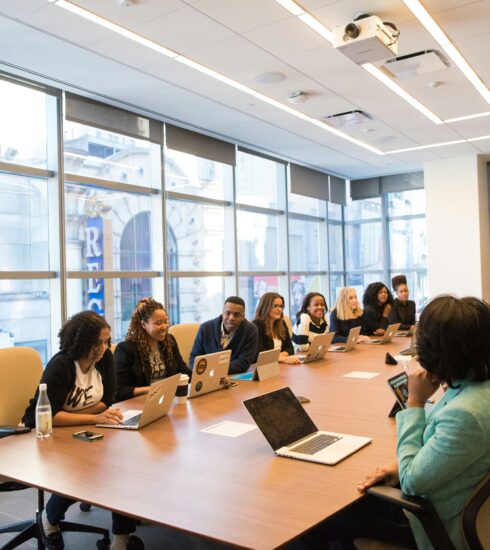Daycare Is Healthcare: Creche In The Workplace Is A Non-Negotiable
Very few things in life are more important than our career. For every individual on earth, a common goal in this capitalistic world we live in will be to work as diligently as possible to earn as much to, in turn, lead a life with no financial constraints. Well, depending on who we are, life puts us on two usually very separate trajectories because, for most women, that whole experience is different. As soon as pregnancy is introduced, which is the case for many women, workplace modus operandi changes. And this is one of the leading causes of the gender pay gap to date—maternity is not something men have had to worry about. The substantial man-hours (for lack of a better word as ‘woman-hour’ is not a thing) women have to give up—between 10 to 12 weeks—already puts them at a disadvantage in the instances where they are directly competing against men for career advancement. So women have to work twice as hard trying to maintain a work-life balance that will leave both parts of their life unscathed. At some point, most of them have to leave their infants in someone else’s care as they resume back at the office, a tradition that is not only scary for the nursing mothers involved but also terrifying for whoever is responsible for keeping the infants alive in the meantime. A much simpler resolution to this unnecessary loop is to keep nursing working-class mums closer to their babies, one would think. Crèches in offices have been the subject of gender conversations for as long as the number of women in the corporate world experience a progressive upturn.
Now, this is not a conversation that stays around 365 days a year, and for obvious reasons. The public discourse of due diligence and intentional support of women is not exactly popular in society until a tragedy grabs everyone’s attention. Oftentimes we hear stories of infant casualties in daycare establishments. And in most cases, the mother is off at work because her source of livelihood must be preserved. Surely asking for daycare facilities in the workplace is not that much of a crazy idea as it would curtail these accidents.
In 2021, the House of Representatives passed, for second reading, a bill seeking the establishment of crèche in government-owned and private offices, schools, hospitals and other workplaces. That proposal, sponsored by a member, Sergius Ogun, was contained in a bill seeking to amend the Labour Act. In his argument, he quoted the Minister for Health, Prof Osagie Ehanire, in his press statement during the 2021 Breastfeeding Week, as noting that the exclusive breastfeeding rate in Nigeria was as low as 29 percent, indicating that 71 percent of infants in Nigeria do not enjoy the full benefits of breast milk in their formative years. Ehanire would eventually claim that many infants do not receive optimal feeding as only 9 percent of organisations in Nigeria have a workplace breastfeeding policy. That is a staggeringly low number, and what is to say it has improved since then? There has been neither further reading of nor the passing of the creche bill into law.
Women already have a lot on their plates throughout the natal experience, with a pretty significant number of them handed postpartum depression as a cruel aftermath—research conducted by the Centre for Disease Control and Prevention (CDC) reveals that postpartum depression affects 17.22 percent of the world’s population with 18.4 percent specific to the African continent and over 1.5 million prevalence in Nigeria yearly. It definitely is time for nature to stretch a mightily helping hand to nursing mothers, a workplace creche at a time.
Self-identifies as a middle child between millennials and the gen Z, began writing as a 14 year-old. Born and raised in Lagos where he would go on to obtain a degree in the University of Lagos, he mainly draws inspiration from societal issues and the ills within. His "live and let live" mantra shapes his thought process as he writes about lifestyle from a place of empathy and emotional intelligence. When he is not writing, he is very invested in football and sociopolitical commentary on social media.






